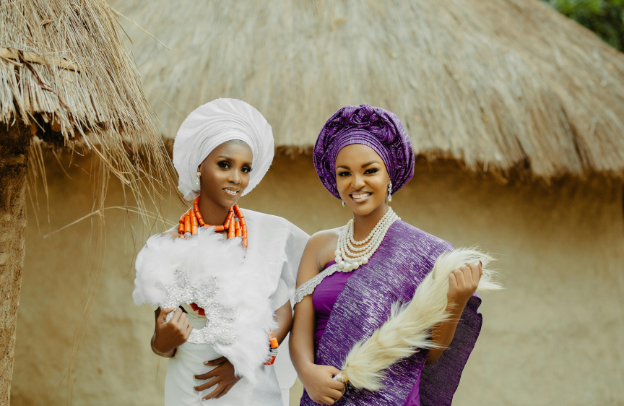How Traveling to Africa Can Help Diasporans Reclaim Their Ancestral Identity

For many in the African diaspora, the question, “Where do I come from?” echoes not only through family conversations but across centuries of displacement, silence, and survival. While genetic testing and historical research have become popular tools for self-discovery, there is something uniquely transformative about setting foot on African soil. For African diasporans, a journey to Africa is more than a physical voyage, it is a profound act of emotional restoration, cultural remembrance, and ancestral reclamation.
Learn How to Leverage Your Story through our Story To Asset Framework.
This pilgrimage, both literal and symbolic, is sparking a renaissance in diasporic identity, nurturing a deeper sense of self, collaboration, healing, and reconnection. Across the African continent, countries are opening their arms to their scattered kin, offering pathways to citizenship, immersive cultural experiences, and opportunities to co-create a shared future shaped by a powerful past.
From Loss to Location: The Identity Gap in the Diaspora
Descendants of enslaved Africans across the Americas and the Caribbean have historically struggled to define their identities, often piecing together fragments left behind by forced assimilation. Many have grown up disconnected from Africa, not just by distance, but by the deliberate erasure of language, religion, and culture.
DNA ancestry services, such as African Ancestry and 23andMe, have created new entry points for diasporans eager to trace their roots to specific ethnic groups and regions. Yet digital revelations are merely the first step. A deep yearning to physically reconnect with the continent has inspired the “Return to Africa” movement, driving identity-based travel and cultural exploration.
Ghana’s landmark “Year of Return” in 2019 powerfully exemplified this, marking 400 years since the arrival of the first enslaved Africans in Jamestown, Virginia. Over a million diasporans answered Ghana’s call—including prominent figures such as Steve Harvey and Cardi B—injecting $1.9 billion into the economy and sparking similar initiatives across West Africa.
Reclaiming Identity Through Immersive Experiences
On African soil, diasporans often engage in profoundly personal rites of passage. Walking through slave dungeons at Elmina and Cape Coast, participating in traditional naming ceremonies, visiting ancestral villages, or dancing to the rhythms their forebears once celebrated are far from mere tourist experiences. Instead, they serve as powerful moments of spiritual affirmation and cultural awakening.
Organizations such as Birthright AFRICA facilitate heritage journeys that include historical site visits, engagement with local communities, and workshops to foster identity exploration. These transformative experiences help participants replace inherited trauma with personal testimonies of resilience and renewal.
See also Cultural Immersion in Africa: How Diasporans Can Connect to Their Roots Through Travel
In Yoruba culture, identity is shaped not merely by lineage but by purpose—what the Yoruba call ori, or one’s inner destiny. Diasporans integrated into indigenous cultural practices often describe an overwhelming sense of belonging and self-awareness. As one traveler poignantly noted during Ghana’s Year of Return: “I didn’t just learn where I’m from; I learned who I’m becoming.”
African Principles as Foundations for Collaboration
Reconnection with Africa is not a one-sided affair. African communities actively embrace the return of diasporans through initiatives grounded in indigenous values of collaboration and kinship. The Southern African philosophy of Ubuntu, “I am because we are”, beautifully captures the communal nature of identity, encouraging communities to welcome diasporans as family, not strangers.
From Benin and Nigeria, where spiritual leaders conduct symbolic reincorporation rituals, to Sierra Leone and The Gambia, where citizenship and land grants are extended to returning diasporans, these efforts exemplify the Ghanaian principle of Sankofa—”go back and get it.” Sankofa reminds us that understanding the past is essential to forging a meaningful future.
Such values are not only spiritual but practical, creating tangible frameworks for collaboration. In Rwanda and Kenya, pan-African forums actively foster partnerships in technology, arts, and agriculture between diasporans and locals, showing how identity reclamation can power mutual development and prosperity.
Building a Future Rooted in Shared Heritage
The return to Africa has also sparked a wave of creativity, innovation, and collective re-imagining. Many diasporans choose not only to visit but also to stay—launching businesses, co-creating cultural content, and investing in local infrastructure. Ghana’s ongoing “Beyond the Return” initiative highlights this commitment to diaspora engagement through investment and cultural exchange.
See also How to Stay Safe When Traveling to Africa: The Ultimate Guide for Groups and First-Time Visitors
Initiatives like the African Diaspora Network and Tastemakers Africa employ storytelling, technology, and curated travel experiences to facilitate ongoing dialogue and economic exchange.
In the arts, artists such as Kehinde Wiley, whose monumental sculpture in Senegal celebrates African resilience, and musicians like Burna Boy and Beyoncé, who integrate diasporan narratives into global works, demonstrate how travel seeds cultural pride and reinvention.
The Emotional and Psychological Rewards of Return
Beyond the tangible benefits, returning to Africa offers significant emotional and psychological healing. Scholars like Dr. Joy DeGruy, who study transgenerational trauma, highlight the psychological scars of slavery and displacement. Reconnecting with ancestral lands can provide closure, dignity, and a profound sense of restored humanity.
You might also like Reclaiming Roots Through Agritravel & Storytelling: A Powerful Gathering of African Diaspora Voices.
According to a study published in the Journal of Black Psychology, African Americans who traveled to Africa reported increased self-esteem, a clearer sense of purpose, and reduced feelings of marginalization upon return. Walking where ancestors walked, speaking with elders, and seeing oneself reflected in local populations and culture deeply reshapes diasporic self-perception.
Conclusion: Not Just a Visit—A Homecoming
For many African diasporans, traveling to Africa is not just a vacation—it is a return home. It is a return to the heartbeat of their identity, the embrace of tradition, and the soil of their origins. By reclaiming ancestral identity, diasporans not only discover themselves but also help Africa rediscover a fuller version of itself, reuniting with its long-lost children.
As cultural tourism, spiritual reconnection, and economic collaboration continue to flourish, this renewed bond between Africa and its diaspora promises healing and a shared future built on understanding, resilience, and unity.
Learn How to Leverage Your Story through our Story To Asset Framework.





